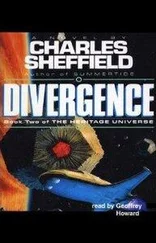“Coming from a pessimist like you, I take that as a rave report. All right.” Zoe leaned back. “It’s showtime again, folks. And here is the plan. Lewis will perform reentry first. As you know, it can only hold three people. Those three are going to be Zoe Nash, Ludwig Holter, and Alta Mclntosh-Mohammad. I will pilot Lewis. Then, unless someone wants to stay up here and wait for the next shuttle up from Earth” — Zoe smiled at her joke, but no one else did — “ Clark will take Reza Armani, Jenny Kopal, Celine Tanaka, and Wilmer Oldfield. Reza will pilot Clark.
“ Lewis will send telemetry back here all the time during reentry, except when it goes through the period of radio blackout. I believe the increased mass load on the second reentry will be more than compensated for by the opportunity to fine-tune Clark’s control parameters using the data from Lewis. Any questions so far?”
There was silence. It was obvious to Celine, as it must be to all of the others, that Zoe had included factors other than mass balance in deciding the complement of the two crews. She had placed the people pairs, Jenny/Reza, Alta/Ludwig, and Celine/Wilmer, on the same orbiter as each other. To some, that might suggest sentiment on Zoe’s part. To a worrywart like Celine, it said that the reentry dangers were more than Zoe was willing to admit. She was offering them a chance to die as the couples that they had become.
“Now there is the question of where ,” Zoe went on. “Where should we aim to land? I think we can make one decision very easily: we avoid the Southern Hemisphere. We’ve picked up hardly a radio signal from there. Also, if we are off in our final along-track position, the Southern Hemisphere offers a higher chance of landing in water. The orbiters are not designed for an ocean splashdown, and even if they were I don’t feel like a thousand-mile swim.
“The majority of the radio signals we have received come from North America, with considerably more from the northern states than the southern, and more from the east than the west. So north is good, and east is good. We are in a low inclination orbit, so a very high latitude touchdown is not possible. I think we can reach forty degrees north, and I propose that we try to do so. I will aim to make Lewis’s landing close to the fortieth parallel, near the eastern seaboard but at least a hundred miles from the Atlantic Ocean. Normally the orbiters can land on a dime, but we need a margin of error. I will not try to specify a final landing location now, because we have not been able to obtain a clear picture of surface conditions. We’ll see what we have available when we get there. An airport would be nice, but any decent highway will do at a pinch. Naturally, once Lewis is down we’ll send a message telling Clark what to aim for or what to avoid. We’ve been over all this before, in smaller groups. But does anybody have a question or a comment?”
She waited a few moments, and went on: “Then the only remaining question is, when?
“We will do one final start-to-finish checkout of everything, which ought to take no more than a few hours. After that, Lewis will take the next available reentry window. The main requirements are that we have a daytime landing — it’s currently night in North America — and that Lewis has line-of-sight communications with those of you who are still here on the Schiaparelli. That means there has to be some orbit matching, but Jenny already did those calculations. Once Lewis is down, we can decide the schedule for Clark based on our experience. Any other questions?”
“I have been thinking.”
To Celine’s surprise, the speaker was Wilmer. He almost never contributed to group meetings. Quite often, he didn’t seem to be listening. But he was. He would go away, brood over what he had heard, and return to offer crucial suggestions or devastating criticisms.
Celine decided that Wilmer understood, better than she had, the nature of this particular meeting. There would be no chance for later discussions. This was it, the final meeting of the Mars expedition until they were all once more on Earth.
“All right, Wilmer,” Zoe said. “What’s your worry?”
He put his hand up to scratch the top of his bald head — a habit that looked ludicrous and that Celine had not been able to change. It gave him a permanent and ugly red patch. “This is a suggestion, not a worry. You speak of a line-of-sight requirement for communications, and I assume that you mean radio signals. But I think we should also track the descent of the Lewis visually, using the biggest scope on the Schiaparelli.”
“What would be the point of that?”
“Suppose that you encounter trouble during that period of reentry when ionization around the orbiter prevents the transmission of radio signals. Visual observation might then offer the only evidence of the nature of the difficulty.”
“We don’t anticipate trouble.” Zoe glanced around the rest of the group, who were showing uneasiness in various ways at the implications of Wilmer’s suggestion. “I guess we all like to think positive. But Wilmer is right. If anything were to go wrong with Lewis, the rest of you will need to learn all you can from our difficulties before Clark makes its own return from orbit. Celine, please make sure that the big scope is set up for continuous visual coverage of the reentry of Lewis.
“Anything else? No?” Zoe went on casually, as though orbital reentry to a radically changed Earth in an untested ship was the most routine operation imaginable. “Let’s get to it, then. I’m fond of the Schiaparelli, and it’s been good to us. But I’m a little bit itchy to get home.”
“Day” and “night” on the Schiaparelli violated human nature and common sense. The Mars ship was locked into the same orbit as ISS-2, and every ninety minutes brought a new dawn and a new sunset. It took five of those “days,” almost eight hours, before the motion of Earth and ship were synchronized, and Zoe was able to say from the controls of Lewis, “ We have thrust. See you all down there.”
Celine and the other three were in the control room of the Schiaparelli, where they could receive radio inputs from Lewis and visual images from the biggest of the onboard scopes. She looked at Jenny, Reza, and Wilmer and felt a strange uneasiness. Zoe, Ludwig, and Alta had not always been in the same cabin with her on the Schiaparelli; for much of the time on the return journey, they had all hidden themselves away from each other. But in a sense the other six had been “there,” all the time. They had formed a unit, working together in the greatest feat of human exploration ever undertaken.
Now they were split, and even when they came together again on Earth it would not be the same. Something had been lost in that moment of Lewis’s departure. Celine hated the feeling of loneliness.
At the moment the orbiter was still close to them, and they did not need a scope to see the blue-white flare of its nuclear rocket. But Lewis dropped away steadily, losing altitude and velocity, and as the minutes passed the ship as seen without the scope dwindled to a fiery spark. It was beginning the long arc down to the atmosphere of the Earth.
“Everything is nominal.” Zoe’s voice was clear over the telemetry. “The control routines are behaving exactly as we hoped and expected. You will lose radio contact with us in eight minutes.”
Even when ionization induced a temporary radio silence, the image of the orbiter would still be picked up by the big onboard telescope and displayed on the control-room screen. Celine looked, and saw that Lewis had already switched off its engine and turned for the nose-first reentry. The image of the orbiter was tiny but quite clear. She even imagined she could make out the dots of people’s heads in the cabin’s transparent viewport.
Читать дальше












